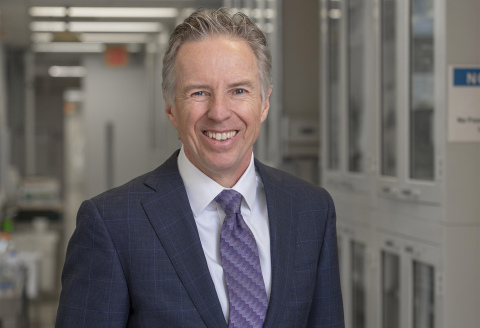Feinstein Institutes with Translational Behavioral Medicine, the National Cancer Institute, Fox Chase Cancer Center curate one-of-a-kind publication
As 2021 marks the 50th anniversary of President Richard Nixon declaring “war on cancer,” researchers from The Feinstein Institutes for Medical Research, in collaboration with the Division of Cancer Control and Population Sciences (DCCPS) at the National Cancer Institute (NCI) and Fox Chase Cancer Center published today a special edition of the Society of Behavioral Medicine’s journal Translational Behavioral Medicine: Practice, Policy, Research (TBM).
This press release features multimedia. View the full release here: https://www.businesswire.com/news/home/20211130005975/en/

Michael Diefenbach, PhD, professor in the Institute of Health System Science at the Feinstein Institutes was one of the editors on the special edition of the journal. (Credit: Feinstein Institutes)
The issue, titled“Cancer Prevention and Control for a New Decade,” curates 12 articles co-authored by experts in behavioral and preventive medicine across the globe to explore the field of cancer population sciences and ways to understand the how, when and under what circumstances people are most likely to alter their health behaviors and practices.
“Cancer is still a leading cause of death and to provide better care – both preventative and treatment – we must understand what drives a person’s health behaviors and decision-making,” said Michael Diefenbach, PhD, editor on the special issue of the TBM journal and professor in the Institute of Health System Science at the Feinstein Institutes. “From detection to diagnosis and survivorship, this collection of articles are meant to provide a roadmap for future investigators to expand on behavioral cancer research.”
To support up-and-coming, young investigators and inspire the next generation of research each article includes one or more early-career behavioral medicine scientist co-authors, such as trainees or early-stage faculty. The overall goal of the journal is to create an impact on cancer prevention and control research, practice and policy over the next decade.
Journal editors outlined suggestions to build on the research of these articles, including a focus on real-world implementation, population health, an emphasis on equitable interventions, the use of technology, building new partners and supporting government efforts to support new policies.
“Behavioral medicine researchers study decision-making by patients,” said Kevin. J. Tracey, MD, president and CEO of the Feinstein Institutes. “Dr. Diefenbach and colleagues are leaders in this field because their results are invaluable for cancer patients making difficult decisions.”
# # #
About the Feinstein Institutes
The Feinstein Institutes for Medical Research is the research arm of Northwell Health, the largest health care provider and private employer in New York State. Home to 50 research labs, 3,000 clinical research studies and 5,000 researchers and staff, the Feinstein Institutes raises the standard of medical innovation through its five institutes of behavioral science, bioelectronic medicine, cancer, health innovations and outcomes, and molecular medicine. We make breakthroughs in genetics, oncology, brain research, mental health, autoimmunity, and are the global scientific leader in bioelectronic medicine – a new field of science that has the potential to revolutionize medicine. For more information about how we produce knowledge to cure disease, visit http://feinstein.northwell.edu and follow us on LinkedIn.
View source version on businesswire.com: https://www.businesswire.com/news/home/20211130005975/en/
Contacts
Matthew Libassi
631-793-5325
mlibassi@northwell.edu

